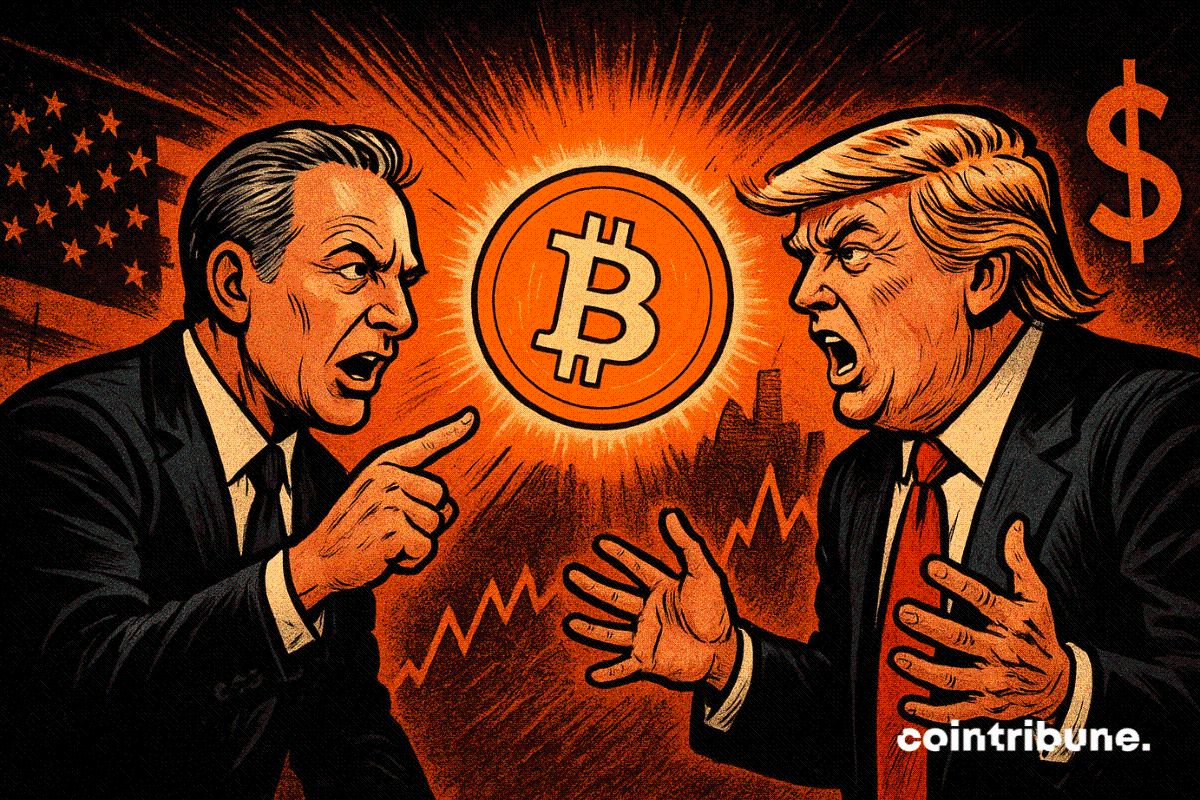Elon Musk’s xAI Sues OpenAI Over Alleged Trade Secret Theft Amid Ongoing AI Rivalry
The battle between Elon Musk and OpenAI has taken another turn. This time, Musk’s own AI startup, xAI, has filed a lawsuit in federal court in California, claiming that OpenAI stole its trade secrets to gain an advantage in developing artificial intelligence.

In Brief
- xAI has filed a lawsuit against OpenAI in California, initiating legal proceedings over alleged trade secret violations.
- The complaint alleges former xAI employees shared confidential materials with OpenAI and that the company recruited them to access sensitive information.
- OpenAI denies the allegations and has called the lawsuit part of Elon Musk’s ongoing harassment.
Alleged Trade Secret Theft by Former xAI Employees
The complaint alleges that OpenAI broke both California and federal laws by inducing former xAI employees to take and share confidential materials. The filing names researcher Xuechen Li, engineer Jimmy Fraiture, and a senior finance executive as the employees involved. xAI argues that by recruiting these individuals and accessing sensitive information, OpenAI secured knowledge that gave it an unfair competitive edge.
The complaint details a series of incidents in which OpenAI’s Tifa Chen allegedly communicated with Li through the Signal messaging app . According to xAI, Li uploaded the company’s entire source code to a personal cloud account, deleted evidence of the action, and later downloaded the material to his laptop. On July 28, OpenAI is said to have offered Li millions of dollars in exchange for the code. The statement reads:
Chen communicated OpenAI’s offer of multiple millions of dollars. This huge bounty was OpenAI’s quid to Li’s quo—the xAI source code and presentation he pilfered from xAI—and was part of OpenAI’s larger scheme to obtain access to critical xAI trade secret information to neutralize xAI while providing an unfair advantage to OpenAI to the detriment of consumers.
xAI further claims that Li later admitted to taking confidential information. The company wrote that “Li, with his attorney present, admitted in a handwritten document he provided to xAI that he misappropriated xAI’s source code and presentation on xAI’s highly valued training and tuning techniques.”
The lawsuit also claims that Fraiture committed similar misconduct by moving confidential xAI files from his work laptop onto a personal device via AirDrop. Allegedly, there were at least five transfers or attempts on July 31, and the complaint notes that Fraiture admitted to keeping a copy of the confidential files on his personal laptop for several weeks.
Legal Experts Weigh In on the xAI vs OpenAI Dispute
Legal experts offer their perspective on the case and what it could mean for both companies:
- Ishita Sharma, managing partner at Fathom Legal, said xAI will need to define its trade secrets broadly, covering code as well as strategic and operational elements.
- Sharma noted that recruiters’ involvement adds complexity, as liability depends on whether they acted on OpenAI’s behalf and whether the company was aware of their actions.
- She said OpenAI could defend itself by proving independent development, supported by time-stamped records like Git commits, research notes, supplier invoices, or emails.
- Navodaya Singh Rajpurohit, legal partner at Coinque Consulting, said the case centers on employee poaching, and whether it is unlawful depends on evidence beyond what is in the filing.
OpenAI Calls Lawsuit Part of Musk’s Harassment
OpenAI has denied the allegations , with a company spokesperson describing the lawsuit as part of what it calls Musk’s ongoing harassment and maintaining that the claims are false.
The case adds another chapter to a broader legal conflict between Musk and OpenAI . Musk, who co-founded OpenAI in 2015 and left the board in 2018, previously sued the company over its shift to a for-profit structure, while OpenAI has filed a countersuit alleging harassment.
Disclaimer: The content of this article solely reflects the author's opinion and does not represent the platform in any capacity. This article is not intended to serve as a reference for making investment decisions.
You may also like
Discover How ZKsync Fast-Tracks Blockchain Security
In Brief ZKsync Lite will be retired by 2026, having achieved its goals. ZKsync team plans a structured transition, ensuring asset security. Future focus shifts to ZK Stack and Prividium for broader application.

Bittensor Follows Bitcoin Path With TAO Halving

Mining Sector Falls 1.8 % Despite Bitcoin Rally

Stablecoin Startup Crown Secures $13.5M from Paradigm in a Game-Changing Move
